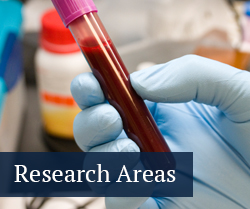Computational Modeling of Biological Systems
Computational tools enable bioengineers to gain unique insights into the complexity of biological systems, especially when closely integrating with experimentation. Leveraging the advancing computing resources available at Penn State, our department utilizes computational and numerical approaches to investigate numerous biological processes and systems, including the function of the human brain, coordinated cell activities, molecular motor dynamics, cancer progression, and the musculoskeletal system.
Active Biomaterials Lab

Igor Aronson
Molecular Biomechanics Lab

William Hancock
Decision Neuroscience Lab

Nina Lauharatanahirun
Multimodal and Computational Neuroimaging Lab

Xiao Liu
Artificial Heart and Cardiovascular Fluid Dynamics Lab

Keefe Manning
Systems and Synthetic Biology Lab

Justin Pritchard
Movement of the Upper Limb and Shoulder Lab (MUSL)

Meghan Vidt




